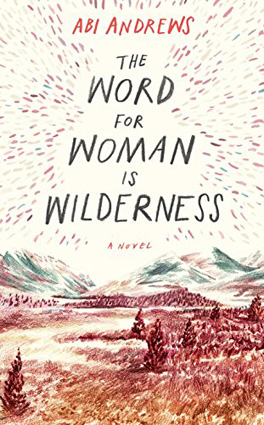In an author's note at the end of this novel Karen Joy Fowler expresses her feelings of ambiguity about fictionally recreating the life of John Wilkes Booth, one of the most notorious figures in US history. He was famed for being a handsome and talented actor until the age of 26 when he became infamous for assassinating President Abraham Lincoln in Ford's Theatre on April 15, 1865. Why give more attention to a fanatic and egotist? This was a defining moment in American history which forever reshaped the country so it's only natural to wonder how it came about. Fowler was interested in the way it affected the rest of Booth's family. She's also haunted by Lincoln's warnings about tyrants and mobs in this country and how this still resonates today. The impetus for this novel which recreates the story of the Booth family also presents a conundrum for the reader who will most likely only know of John Wilkes Booth for a single defining action. Therefore, following the story of his life from birth we're naturally attentive to any action which indicates a propensity for mental instability, extreme views or violence. Fowler peppers the text with such signs and we can only warily witness an emboldened John who states at one point: “It's a wonderful thing... to be right in the middle of something so momentous. To feel that you've touched history and history has touched you.” Unlike the author's previous novel “We Are All Completely Beside Ourselves” which contains a famous twist, there's never any doubt about how “Booth” will end but that makes this story no less gripping.
The thing about significant historical events is that they can come to feel inevitable, but obviously in the present moment we're faced with an infinite number of possibilities. We also cannot know the many repercussions of our actions. Though Fowler describes John as having certain propensities, his family definitely didn't view him as having the potential to be a monster. This novel primarily focuses on the point of view of John's surviving siblings and the dramatic story of their challenging family life leading up to John's murderous action. Their father Junius was a famous Shakespearean actor and a complicated tyrannical larger-than-life figure. On one hand, he was an intelligent artist who respected all life as sacred. On the other, he was bigamist who abandoned his first wife, frequently neglected his family and occasionally drunkenly terrorized his mistress and children. Naturally living under his shadow his children grew to both revere and hate him. It's fascinating reading how they change over time and wrestle with their identities as the offspring of Booth. Crucially, their interactions with John feel like any complicated sibling relationship. There's closeness and distance as well as moments of tenderness and frustration.
In between following the family's development we're also given shorter snippets about Lincoln's personal and political life. This serves as an interesting counterpoint because, just as things could have turned out differently for John, the same is true of Lincoln who was a politically moderate figure in the right place at the right time to become a presidential candidate. Only through his astute reasoning did he decide that the country could not continue and progress while slavery was legal. However, he wasn't certain about whether Whites and African Americans could co-exist in America. Of course, the Emancipation Proclamation was met with a lot of opposition and the issue of slavery embroiled the country in a deadly civil war. But in the novel we see how things could have so easily turned out differently. Additionally the narrative follows the story of an African American family acquainted with the Booths who endeavour over a period of many many years to buy freedom for each of its members. This is only a peripheral strand of the novel but it crucially shows that whatever struggles the Booths encountered, the struggle of many black people in the country was dire. The questions being debated weren't merely political but very personal.
The novel illuminates a number of compelling historical details about the nature of life at the time from conditions in the home to the difficulty of travel before a better infrastructure was in place. Because of Julius and many of his sons' involvement in the theatre there is also an interesting look at the position of theatres within American society at the time. Equally, there was as much drama back stage and in the audience as on the stage itself. I enjoyed the inclusion of Adam, a gay theatre critic who becomes acquainted with the family, and the odd tension which arises between him and Edwin Booth. The novel also illuminates a number of larger historical facts which I wasn't previously aware of such as the distinction between owning and leasing slaves, the harrowing events/tragedy of The Dakota War and the fact that Maryland's state song included derogatory lyrics about Lincoln. It took more than ten attempts over forty years for both houses of the General Assembly to finally vote to abandon this song in 2021.
Does this novel give the definitive reason for John's extremism? Like most shocking occurrences, it shows how there is no one single cause but a multitude of influences and factors which led to this tragedy. Just like his elder sister Rosalie we're left asking “what if” and wonder how events might have turned out very differently. There's no way to control the past or its consequences. Instead, Fowler shows the hidden complexities of the past and the nuance of personalities who could easily be flattened into certain types. Like all great historical fiction, this story breathes life into the past and imaginatively fills in the gaps between known facts to show we're not disconnected from history. John Wilkes Booth might be anyone's brother and the violence which occurred following a monumental readjustment of power in the US will likely happen again.























